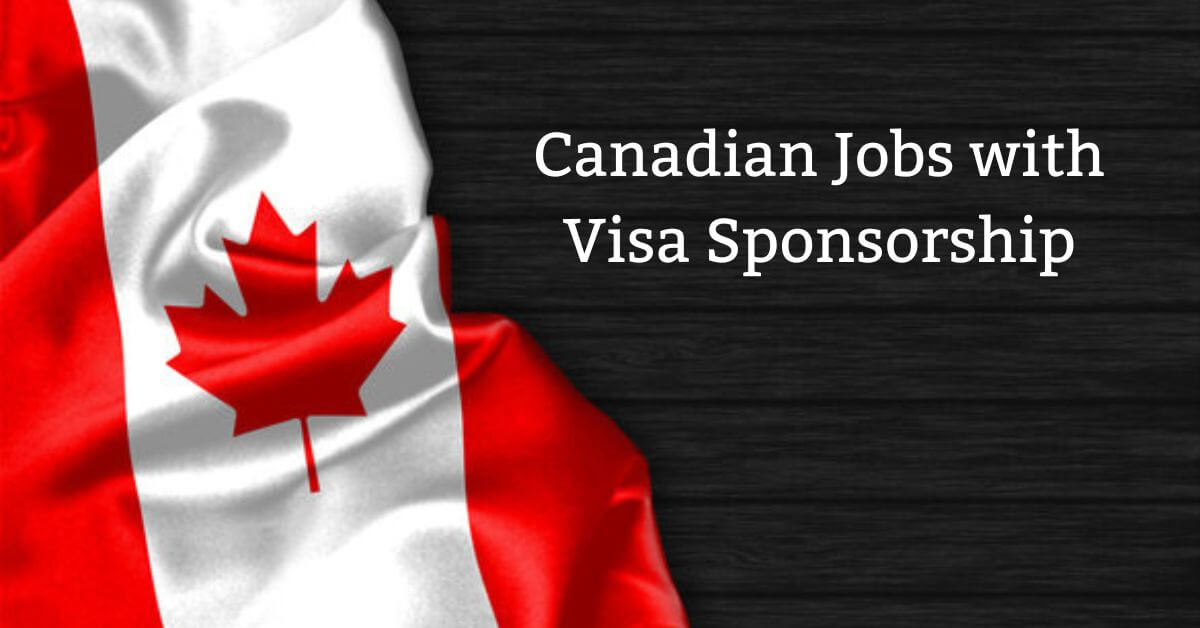Canadian Jobs with Visa Sponsorship open the door for international talent to build a rewarding career in Canada while enjoying competitive salaries ranging from CAD $32,000 to $85,000 per year, depending on the role and experience level. Many of these jobs welcome both entry-level workers with little to no prior experience as well as skilled professionals, making them accessible to a wide range of applicants.
You’ll find opportunities in diverse industries such as healthcare jobs in Canada, IT jobs in Canada, hospitality jobs, construction jobs, and logistics jobs, with options for both remote work and on-site, physical jobs depending on the job type. These roles not only provide stable employment in Canada but also come with the added benefit of visa sponsorship for foreign workers, helping you take the exciting step toward building a new life and career in Canada.
What is a Canadian Work Permit?
The legal document that allows a talented foreign worker like you to work in Canada is called a Canadian work permit. To put it another way, obtaining this visa is essential if you wish to work in Canada. Employers in Canada are essential to this process since they frequently have to get a Labour Market Impact Assessment (LMIA) before they may hire foreign workers. You will not be allowed to work there if you don’t comply.
Canadian work permits fall into two categories. These are the open work permit and the employer-specific work permit.
How to Get a Canadian Work Permit?
You must first have a job offer from a Canadian employer in order to obtain a work permit for Canada. You must apply to various Canadian businesses or internet resources in order to obtain one.
You can now obtain the necessary forms on the Canadian government’s website after receiving an offer. However, be sure that the job offer you receive is related to occupations that provide or support important services, such as those in the healthcare and agricultural industries. This is so that your application can be processed immediately. Your application will still be completed even if your profession is not on the list of qualifying occupations that provide or support critical services. It might, however, take longer than normal.
One of the primary methods used in Canada to grant work permits is the Temporary Foreign Worker Program. In response to labor market shortages, it assists Canadian firms in hiring overseas workers.
You must select your home country when submitting an online work permit application since this will take you to the guidelines and visa requirements specific to your nation. In order to pay and monitor the status of your application, you must also register online and log in.
You must first obtain the National Occupational Classification (NOC) number that your employer entered on the labor market impact assessment (LMIA) or job offer of employment before completing the work permit application form. That number must be entered in the job title field. In the Details of Intentional Work in Canada section, this is box 4. Keep in mind that you only need to input the number. Your application will be given priority if you do this.
Top Types of Canadian Jobs with Visa Sponsorship:
Healthcare Jobs in Canada:
Healthcare jobs in Canada with visa sponsorship are in high demand due to the country’s growing need for skilled medical professionals. From registered nurses and doctors to caregivers and healthcare assistants, opportunities are available across hospitals, clinics, and elderly care facilities. Salaries typically range between CAD $50,000 to $120,000 per year, depending on specialization and experience.
Many healthcare employers offer LMIA-approved visa sponsorship to attract international candidates. This makes it easier for qualified professionals to move to Canada, secure permanent residency, and enjoy job stability. If you have a background in healthcare, Canada offers excellent career growth, competitive pay, and the chance to make a difference in people’s lives.
IT Jobs in Canada:
Canada’s tech industry is booming, creating thousands of opportunities for IT jobs in Canada with visa sponsorship. Roles such as software developers, data analysts, IT project managers, cybersecurity experts, and cloud engineers are in particularly high demand. Employers are actively seeking international talent and often provide visa sponsorship for qualified professionals with proven skills. Average salaries for IT jobs range from CAD $60,000 to $120,000 annually, with options for remote, hybrid, and on-site work.
The Canadian government supports tech immigration through programs like the Global Talent Stream, making it faster for skilled IT professionals to get work permits. For those looking to grow in the digital industry, Canada offers a thriving environment with long-term immigration pathways.
Engineering Jobs in Canada:
Engineering jobs in Canada with visa sponsorship provide international professionals the chance to work in one of the world’s most advanced infrastructure and technology-driven economies. Canada is hiring civil engineers, mechanical engineers, electrical engineers, software engineers, and project engineers to support large-scale projects in construction, energy, transport, and technology.
Salaries usually range from CAD $65,000 to $110,000 per year, depending on the role and experience level. Many companies apply for Labour Market Impact Assessment (LMIA) to sponsor foreign workers, ensuring easier work permit approvals. With Canada’s continuous focus on innovation and sustainable development, engineers can find secure jobs, career advancement, and opportunities for permanent residency.
Hospitality Jobs in Canada:
Hospitality jobs in Canada with visa sponsorship are perfect for individuals passionate about customer service and tourism. Positions such as hotel managers, chefs, waiters, bartenders, housekeeping staff, and front desk officers are in high demand across major cities and tourist destinations. Salaries vary between CAD $28,000 and $55,000 annually, with many employers offering additional benefits like accommodation, meals, and training.
The hospitality sector often faces labor shortages, making visa sponsorship an attractive option for employers to hire international talent. These jobs also serve as an excellent pathway to Canadian permanent residency, as experience in hospitality is valued under several immigration programs. For people seeking a rewarding international career, the hospitality industry in Canada offers growth, cultural exposure, and stability.
Check More: Lastest Jobs in Canada for Temporary Foreign Workers
Work Permit & Visa Processing:
After completing the online application, watch for the outcome of the visa processing. They will review your application during this period to ensure that you have all required paperwork, including biometrics. Additionally, confirm that you have filled out all the prerequisites, as they will return your application without processing it if you don’t. A key player in the work permit procedure is Employment and Social Development Canada (ESDC), which makes sure all requirements are fulfilled.
In order to confirm that you are eligible for a work visa and that the employer can recruit you, an officer will also review the list of employers who did not meet the requirements. You can also be instructed to email further information or papers, or to attend an interview with their representatives in your nation. This is especially crucial for foreign employees.
Coordinated universal time (UTC) is used by the Canadian government’s online application system. In the event that the officer requests that you upload papers to your newly created account, you have until midnight UTC on the specified day to do so. Make sure you understand how UTC differs from your local time.
You must also undergo a medical examination when entering Canada. You will receive instructions from an officer on what to do. They may take more than three months to process your application if you have a medical exam.
You will receive an approval letter stating that you are permitted to work in Canada following the approval of your work permit application. This letter is known as the introduction letter for port of entry. This letter is required to be presented at the port of entry when you arrive in Canada. Your work permit has not yet been issued by this letter. Your work permit will only be issued at the port of entry on the day you land in Canada.
You may find out what kind of work you can do, who you can work for, where you can work, and how long you can work in your work visa.
Prepare for Arrival:
You must have your passport, visiting visa, and any other travel documents you are carrying with you when you enter Canada. Additionally, you might have to provide documentation proving your work permit application was accepted. Presenting your port of entry letter of introduction to the border services officer is one method of doing this. If you applied online or provided an email address on the work permit application form so they could contact you, you will receive this letter. You can bring an electronic copy of this letter or print it out. You could also be able to bring a common law partner with you to Canada.
A copy of your employer’s positive labor market impact assessment (LMIA), if necessary, and evidence of your education and work experience are additional important pieces of supporting documentation. If your employer required an LMIA and you will be working in Quebec, you will also need a copy of your attestation of issuing of your Quebec Acceptance Certificate (CAQ).
Last but not least, if you are LMIA exempt and coming to work for a specific employer, the offer of employment number your employer obtained when they submitted the offer of employment through the Employer Portal. Permit holders’ children are not required to get a separate study permit in order to attend Canadian educational institutions.
Anticipate an identity check upon your arrival in Canada. This is merely to confirm that you are the same individual who was authorized to work in Canada. Along with your required documentation, you might also need to speak with border service personnel and explain why you are visiting Canada. Make sure all of your needs are genuine because you won’t be allowed to enter Canada if you submit a phony one.
The border officer will print the real work permit for you once they have verified your paperwork and given you permission to enter Canada. Before you depart, make sure to ask the officer any questions you may have or if there is an error on your work permit.
Conclusion:
Canadian jobs with visa sponsorship open the door to life-changing opportunities for skilled workers, fresh graduates, and professionals who dream of building a stable career in one of the world’s most welcoming countries. With competitive salaries, flexible work options, and pathways to permanent residency, these roles not only provide financial security but also a chance to experience Canada’s diverse culture and high standard of living.
Whether you are seeking growth in healthcare, IT, hospitality, or skilled trades, securing a sponsored job in Canada can be your first step toward a brighter and more rewarding future.
Frequently Asked Questions:
-
Who can apply for Canadian jobs with visa sponsorship?
Foreign nationals with the required skills, experience, and a job offer from a Canadian employer.
-
What type of visa is provided for sponsored jobs in Canada?
A work visa or work permit approved by the Canadian government.
-
Can visa-sponsored jobs lead to permanent residency in Canada?
Yes, many sponsored positions can provide pathways to permanent residency for eligible workers.






